Hydrocodone is a powerful prescription medication that combines an opioid analgesic with acetaminophen, a non-opioid pain reliever. The specific dosage you mentioned, “Hydrocodone 10-500 mg,” typically represents the amount of hydrocodone and acetaminophen in a single tablet. In this case, it signifies that each tablet contains 10 milligrams of hydrocodone and 500 milligrams of acetaminophen. Here, I will provide a detailed explanation of hydrocodone, its uses, dosage, potential side effects, and safety considerations.
Hydrocodone: An Overview
Hydrocodone is a semi-synthetic opioid derived from codeine, and it’s primarily used to manage moderate to severe pain. It’s classified as a Schedule II controlled substance due to its potential for abuse and physical dependence. The addition of acetaminophen in combination products like “Hydrocodone 10-500 mg” serves to enhance the pain-relieving effects of hydrocodone while reducing the overall opioid dosage required for effective pain management.
Uses of Hydrocodone
Hydrocodone is typically prescribed for the relief of acute or chronic pain, such as pain following surgery, dental procedures, injuries, or conditions like cancer. It’s essential to emphasize that hydrocodone is not intended for mild or intermittent pain but is reserved for situations where other less potent pain relievers are insufficient.
Dosage and Strength: Hydrocodone 10-500 mg
The dosage mentioned, “Hydrocodone 10-500 mg,” refers to the amount of hydrocodone and acetaminophen in a single tablet. In this case:
- 10 mg of hydrocodone: This is the opioid component responsible for pain relief.
- 500 mg of acetaminophen: This is a non-opioid pain reliever that enhances the pain-relieving effects of hydrocodone.
The combination of these two components allows for effective pain management while minimizing the opioid dosage required. Dosages are determined by healthcare providers based on the patient’s pain severity, medical condition, and tolerance.
How Hydrocodone Works?
Hydrocodone, as an opioid, works by binding to specific receptors in the brain and spinal cord known as opioid receptors. These receptors are part of the body’s natural pain management system. When activated by hydrocodone, they work to reduce the perception of pain. Hydrocodone not only decreases the sensation of pain but also alters how the brain processes and responds to painful stimuli. This dual action results in significant pain relief.
Acetaminophen, the non-opioid component, contributes to the pain-relieving effect by inhibiting the production of prostaglandins, chemicals involved in pain and fever. By reducing prostaglandin levels, acetaminophen helps alleviate discomfort and lower elevated body temperatures. When combined with hydrocodone, acetaminophen enhances the overall analgesic effect, allowing for a lower dose of the opioid component.
Safety Considerations and Potential Side Effects
While hydrocodone can be highly effective for pain management, it also carries several safety considerations:
- Addiction and Dependence: As an opioid, hydrocodone has a potential for physical and psychological dependence. It should be used as prescribed and only by the person for whom it is prescribed.
- Respiratory Depression: High doses of hydrocodone can lead to respiratory depression, where breathing becomes slow and shallow. This is a potentially life-threatening side effect, especially if the medication is misused or abused.
- Sedation and Drowsiness: Hydrocodone can cause drowsiness, impair coordination, and affect cognitive function. It’s essential to avoid activities that require alertness, such as driving or operating heavy machinery, while using this medication.
- Gastrointestinal Effects: Common side effects may include nausea, constipation, and vomiting. Stool softeners or laxatives are often recommended to mitigate constipation.
- Liver Toxicity: The acetaminophen component of combination products like “Hydrocodone 10-500 mg” can be harmful to the liver if taken in excessive amounts or in cases of overdose.
- Allergic Reactions: Some individuals may experience allergic reactions to hydrocodone or acetaminophen, characterized by hives, difficulty breathing, or swelling of the face, lips, tongue, or throat. Seek immediate medical attention if such reactions occur.
- Interactions: Hydrocodone can interact with other medications, including alcohol, and should not be combined with alcohol or other central nervous system depressants.
Storing Of Hydrocodone 10-500 mg
Storing medications like Hydrocodone 10-500 mg properly is crucial to ensure their effectiveness, safety, and to prevent unauthorized use. Here are some guidelines for storing Hydrocodone 10-500 mg:
- Original Packaging: Keep the medication in its original prescription container. The container should have a label with important information, including the prescribing healthcare provider, dosage instructions, and the expiration date.
- Cool and Dry Location: Store Hydrocodone in a cool, dry place, away from direct sunlight and moisture. The ideal temperature range is usually between 68°F to 77°F (20°C to 25°C).
- Secure and Out of Reach: Keep the container securely closed and out of reach of children, teenagers, and pets. Opioid medications like Hydrocodone can be dangerous if ingested accidentally.
- Child-Resistant Packaging: Ensure that the container has child-resistant features to provide an added layer of protection against accidental ingestion.
- Bathroom Avoidance: Do not store Hydrocodone in the bathroom, as the humidity and temperature fluctuations can degrade the medication.
- Inaccessible to Visitors: If you have guests or visitors, make sure your medications, including Hydrocodone, are not accessible to them. It’s essential to keep your medications private.
- Lock Box: Consider using a medication lock box if there’s a concern about unauthorized access or misuse, especially if you have children or teenagers in the household.
- Travel Considerations: When traveling, carry only the amount of medication needed for the duration of your trip, and store it in a secure and portable container. It’s also a good idea to have a copy of your prescription handy.
- Disposal of Unused Medication: Safely dispose of any expired or unused Hydrocodone tablets. Most communities have medication disposal programs or take-back events to ensure proper and safe disposal.
Who should avoid taking Hydrocodone tablet?
Hydrocodone is a potent opioid medication used for pain management, often in combination with acetaminophen (such as Hydrocodone 10-500 mg). There are specific groups of individuals who should avoid taking Hydrocodone due to potential risks and contraindications:
- Allergies: Individuals with a known allergy or hypersensitivity to Hydrocodone or any of its components should avoid this medication. Allergic reactions can range from mild skin rashes to severe anaphylaxis.
- Respiratory Conditions: People with certain respiratory conditions, such as severe asthma or chronic obstructive pulmonary disease (COPD), should avoid Hydrocodone. Opioids like Hydrocodone can suppress the respiratory system, potentially worsening these conditions and leading to respiratory distress.
- Central Nervous System (CNS) Depression: Those with a history of CNS depression or conditions that affect the central nervous system, like head injuries, increased intracranial pressure, or central nervous system depressant use, should avoid Hydrocodone, as it can exacerbate these issues.
- Liver Disease: Individuals with liver disease or a history of liver problems should be cautious with Hydrocodone, especially combination products that contain acetaminophen, as excessive acetaminophen can lead to liver damage.
- History of Opioid Misuse or Addiction: People with a history of substance abuse, particularly opioids, should avoid Hydrocodone, as they have an increased risk of misuse, dependence, and addiction.
- Certain Medications: Hydrocodone can interact with various medications, including monoamine oxidase inhibitors (MAOIs), certain antidepressants, and other CNS depressants. People taking these medications should avoid Hydrocodone to prevent dangerous drug interactions.
- Pregnancy and Breastfeeding: The use of Hydrocodone during pregnancy and breastfeeding should be discussed with a healthcare provider. Opioids can have risks to both the mother and the developing fetus or nursing infant.
- Age Considerations: Special caution should be exercised when prescribing Hydrocodone to elderly individuals, as they may be more susceptible to the side effects and risks associated with opioid medications.
Factors affecting intake of hydrocodone tablet
The intake of Hydrocodone tablets can be influenced by various factors, and it is important for individuals and healthcare providers to consider these factors when using this opioid medication responsibly and safely:
- Prescription and Medical Advice: Hydrocodone is a prescription medication, and the primary factor in its intake is the medical prescription. A healthcare provider determines the appropriate dosage and duration based on the patient’s medical condition, pain severity, and overall health.
- Pain Severity: The intensity of pain is a critical factor when deciding whether to use Hydrocodone. It is typically reserved for moderate to severe pain, and the dosage is adjusted accordingly.
- Tolerance and Dependence: Over time, some individuals may develop tolerance to the effects of Hydrocodone, requiring higher doses for the same pain relief. Healthcare providers monitor for signs of tolerance and dependence to prevent misuse and addiction.
- Age and Weight: Dosage may vary based on the patient’s age, weight, and metabolism. Healthcare providers take these factors into account when prescribing Hydrocodone.
- Underlying Medical Conditions: Patients with certain medical conditions, such as liver or kidney problems, may require adjusted dosages or should avoid Hydrocodone due to the risk of complications.
- Drug Interactions: Hydrocodone can interact with other medications, potentially causing adverse effects or reducing its efficacy. Patients should inform their healthcare providers of all medications they are taking.
- Duration of Use: The recommended duration of Hydrocodone use is typically short-term for acute pain. Prolonged use can lead to tolerance, dependence, and a higher risk of side effects.
- Pregnancy and Breastfeeding: Special considerations apply to pregnant and breastfeeding women, as opioids like Hydrocodone can affect the developing fetus or nursing infant. A healthcare provider should carefully assess the risks and benefits.
- Psychological and Emotional Factors: Patients’ psychological and emotional states can influence their use of Hydrocodone. Some individuals may misuse or abuse the medication due to factors like stress, anxiety, or addiction.
- Education and Awareness: Patients should be educated about the proper use of Hydrocodone, potential side effects, and the risks associated with misuse or overdose.
Strength of hydrocodone
The strength of hydrocodone tablets can vary depending on the specific formulation and the combination of active ingredients. Hydrocodone is an opioid medication often used for pain management, and it is typically combined with other substances, such as acetaminophen (Tylenol) or ibuprofen (Advil), to enhance its pain-relieving effects. These combination products are prescribed in various strengths to suit the individual needs of patients.
Common strengths of hydrocodone combination tablets include:
- Hydrocodone 5-325 mg: This formulation contains 5 milligrams of hydrocodone and 325 milligrams of acetaminophen per tablet. It is often used for the relief of moderate to moderately severe pain.
- Hydrocodone 7.5-325 mg: This formulation contains 7.5 milligrams of hydrocodone and 325 milligrams of acetaminophen per tablet. It is prescribed for more severe pain when lower-strength medications are insufficient.
- Hydrocodone 10-325 mg: This formulation is the highest strength in common use, containing 10 milligrams of hydrocodone and 325 milligrams of acetaminophen per tablet. It is typically reserved for patients experiencing severe pain and should be used with caution due to the higher opioid content.
The choice of hydrocodone strength depends on the patient’s pain severity, medical condition, and the healthcare provider’s assessment. Higher-strength tablets are used when more potent pain relief is required, but they also come with a greater potential for side effects and dependence. Therefore, healthcare providers carefully consider the risk-benefit profile when determining the appropriate strength for an individual patient.
Points to emphasize regarding hydrocodone tablet
Hydrocodone is a potent opioid medication used for pain management, and there are several crucial points that should be emphasized when using this medication:
- Hydrocodone is a prescription medication. It should only be taken under the guidance of a doctor’s who has evaluated the patient’s condition and determined the appropriate dosage.
- Hydrocodone is typically reserved for moderate to severe pain. Patients should not use it for mild or occasional pain.
- Patients should follow the prescribed dosage precisely and not alter it without consulting their healthcare provider.
- It is important to avoid alcohol while taking hydrocodone. The combination of alcohol and opioids can lead to dangerous side effects, including respiratory depression.
- Hydrocodone is an opioid, and it has a potential for physical and psychological dependence. Misuse or abuse can lead to addiction.
- High doses or misuse of hydrocodone can cause respiratory depression, a potentially life-threatening condition where breathing becomes slow and shallow. Seek immediate medical attention if this occurs.
- Hydrocodone can cause drowsiness and impair coordination and cognitive function. Patients should avoid activities that require alertness, such as driving or operating heavy machinery, while taking this medication.
- Constipation is a common side effect of opioids like hydrocodone. Patients should maintain a balanced diet, stay hydrated, and use stool softeners or laxatives if necessary.
- Patients should be cautious if they have liver problems, as some hydrocodone formulations contain acetaminophen, which can be harmful to the liver when taken in excessive doses.
- Patients should inform their healthcare provider of all medications they are taking, as hydrocodone can interact with other drugs, potentially leading to adverse effects.
- Hydrocodone should be stored securely, out of the reach of children, teenagers, and pets. Misuse can have serious consequences.
- Unused or expired hydrocodone should be disposed of properly. Many communities have medication disposal programs or take-back events to ensure safe disposal.
How to store hydrocodone tablet?
Proper storage of hydrocodone tablets is crucial to maintain their effectiveness, ensure safety, and prevent unauthorized use. Here are guidelines for storing hydrocodone tablets:
- Original Packaging: Keep the medication in its original prescription container. The container should have a label with important information, including the prescribing healthcare provider, dosage instructions, and the expiration date.
- Cool and Dry Location: Store hydrocodone in a cool, dry place, away from direct sunlight and moisture. The ideal temperature range is usually between 68°F to 77°F (20°C to 25°C).
- Secure and Out of Reach: Keep the container securely closed and out of reach of children, teenagers, and pets. Opioid medications like hydrocodone can be dangerous if ingested accidentally.
- Child-Resistant Packaging: Ensure that the container has child-resistant features to provide an added layer of protection against accidental ingestion.
- Bathroom Avoidance: Do not store hydrocodone in the bathroom, as the humidity and temperature fluctuations can degrade the medication.
- Inaccessible to Visitors: If you have guests or visitors, make sure your medications, including hydrocodone, are not accessible to them. It’s essential to keep your medications private.
- Lock Box: Consider using a medication lock box if there’s a concern about unauthorized access or misuse, especially if you have children or teenagers in the household.
- Travel Considerations: When traveling, carry only the amount of medication needed for the duration of your trip, and store it in a secure and portable container. It’s also a good idea to have a copy of your prescription handy.
- Disposal of Unused Medication: Safely dispose of any expired or unused hydrocodone tablets. Most communities have medication disposal programs or take-back events to ensure proper and safe disposal.
It’s crucial to stress that hydrocodone is a controlled substance, and its use should be carefully supervised by a healthcare provider. Misuse, unauthorized access, or sharing of these medications can have serious consequences. Patients should use hydrocodone only as prescribed, be aware of its benefits and risks, and follow storage guidelines to ensure the safety of the medication.
FAQ on Hydrocodone Tablet
What is hydrocodone, and how does it work?
Hydrocodone is an opioid medication used for pain relief. It works by binding to opioid receptors in the brain and spinal cord, reducing the perception of pain.
What is the strength of hydrocodone tablets?
Hydrocodone tablets come in various strengths, with common formulations including 5-325 mg, 7.5-325 mg, and 10-325 mg. The numbers represent the amount of hydrocodone (in milligrams) and acetaminophen (Tylenol) in each tablet.
When is hydrocodone prescribed?
Hydrocodone is typically prescribed to manage moderate to severe pain, such as pain after surgery, injury, dental procedures, or in cases of chronic pain.
Is hydrocodone safe to use during pregnancy or while breastfeeding?
The use of hydrocodone during pregnancy or breastfeeding should be discussed with a healthcare provider. It can have risks to both the mother and the developing fetus or nursing infant.
Can I drink alcohol while taking hydrocodone?
It is not safe to consume alcohol while taking hydrocodone. The combination can lead to dangerous side effects, including respiratory depression and sedation.
What are common side effects of hydrocodone?
Common side effects may include drowsiness, dizziness, constipation, nausea, and vomiting. More serious side effects can occur and should be reported to a healthcare provider.
Can hydrocodone be habit-forming?
Yes, hydrocodone is an opioid and has a potential for physical and psychological dependence. Misuse or abuse can lead to addiction.
Is it safe to drive or operate heavy machinery while taking hydrocodone?
Hydrocodone can cause drowsiness and impair coordination. It’s essential to avoid activities that require alertness until you know how it affects you.
How should I store hydrocodone tablets?
Hydrocodone should be stored in its original prescription container in a cool, dry place, away from direct sunlight and moisture. Keep the container secure and out of reach of children and pets.
Can hydrocodone interact with other medications?
Yes, hydrocodone can interact with various medications, including other opioids, certain antidepressants, and central nervous system depressants. Inform your healthcare provider of all the medications you are taking.
What should I do if I miss a dose of hydrocodone?
If you miss a dose, take it as soon as you remember. However, if it’s close to the time for the next dose, skip the missed dose and continue with your regular schedule.
How should I dispose of unused or expired hydrocodone tablets?
Safely dispose of any unused or expired hydrocodone tablets. Many communities have medication disposal programs or take-back events to ensure proper and safe disposal.
How long should I take hydrocodone?
Hydrocodone is typically prescribed for short-term use. Prolonged use can lead to tolerance, dependence, and a higher risk of side effects. Patients should follow their healthcare provider’s guidance regarding the duration of use.
Is it safe to share hydrocodone with someone else?
Hydrocodone is prescribed based on an individual’s specific medical condition and should never be shared with others. Misuse can have serious consequences.
What should I do if I experience side effects or concerns while taking hydrocodone?
If you experience adverse effects or have concerns, it’s important to contact your healthcare provider immediately. They can provide guidance and adjustments to your treatment plan if necessary.


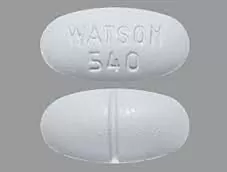


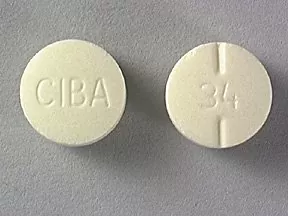
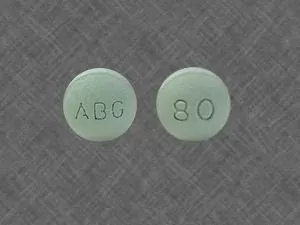
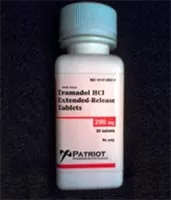

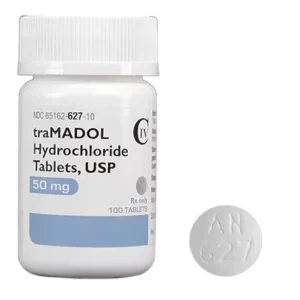


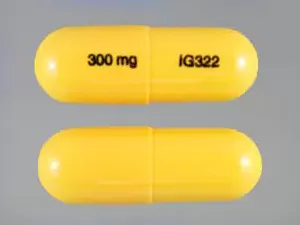
Reviews
There are no reviews yet.